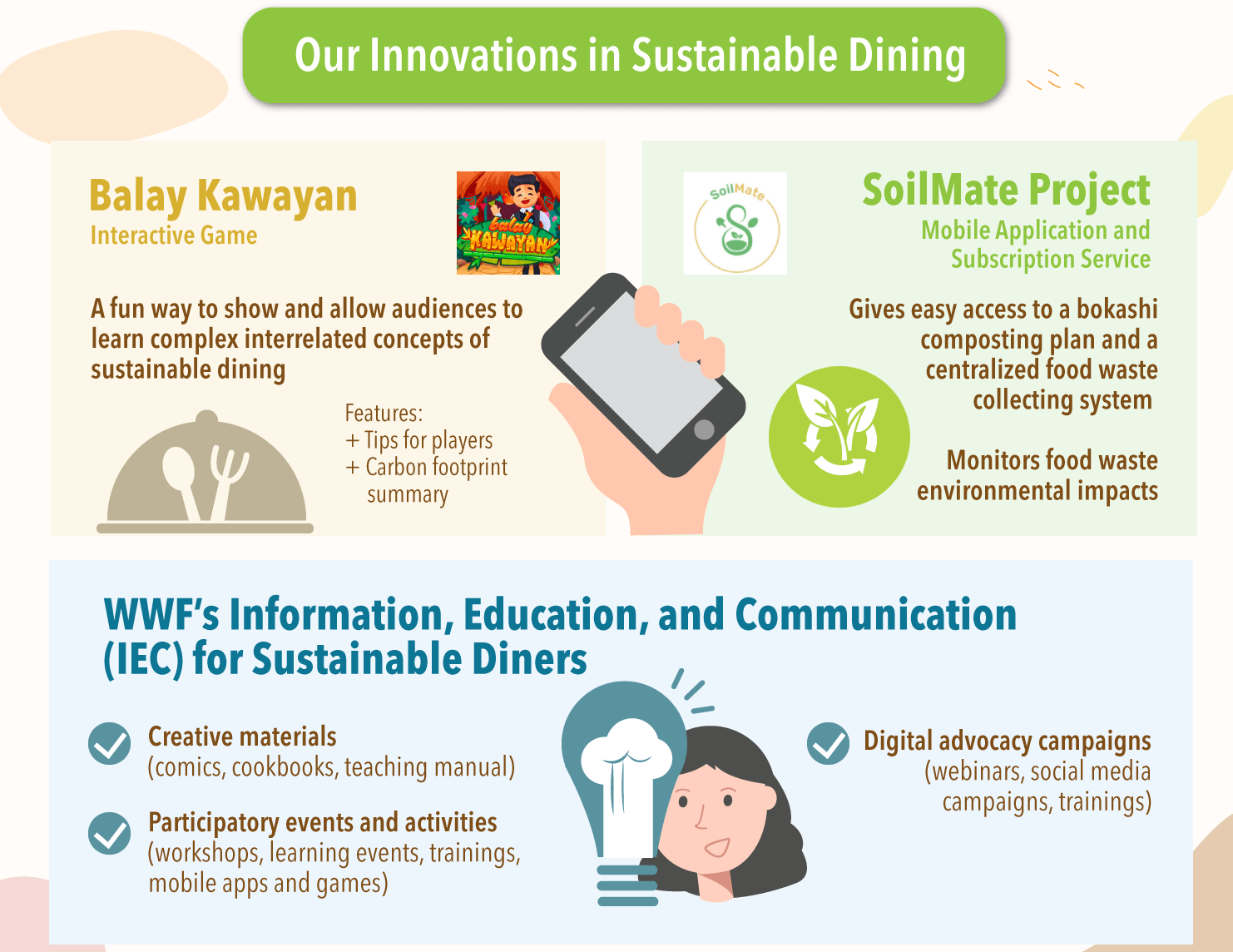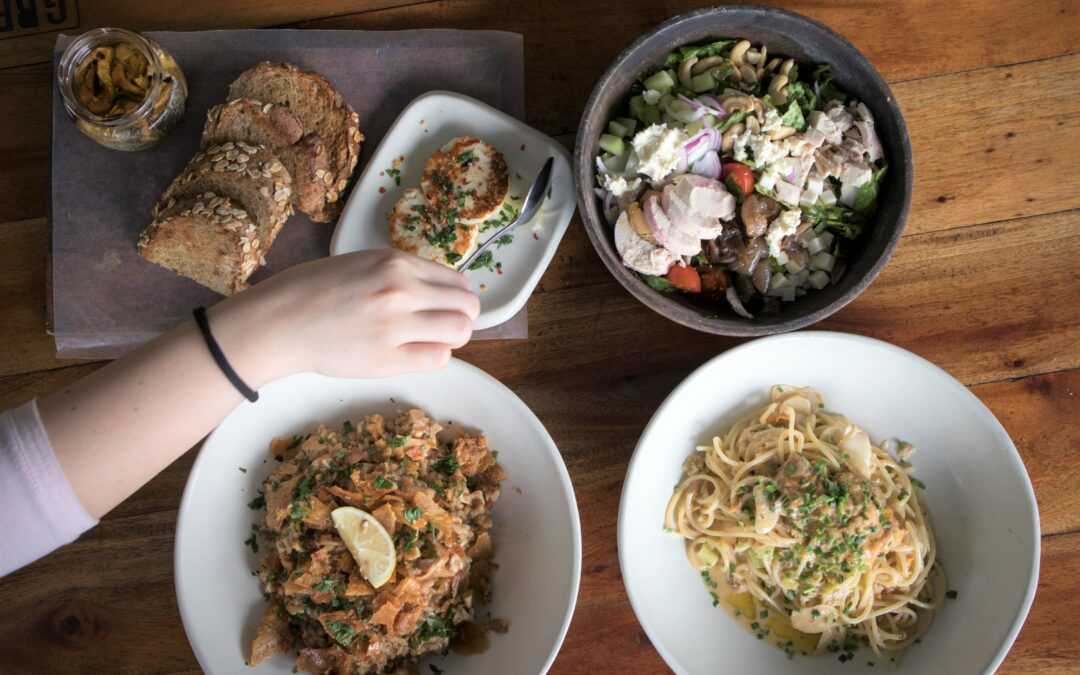The Sustainable Diner, WWF-Philippines
Launched in 2017, the Philippine project component aims to transform the restaurant sector to having minimal impact on the environment. How? By raising awareness and adopting environmentally friendly practices, for example.
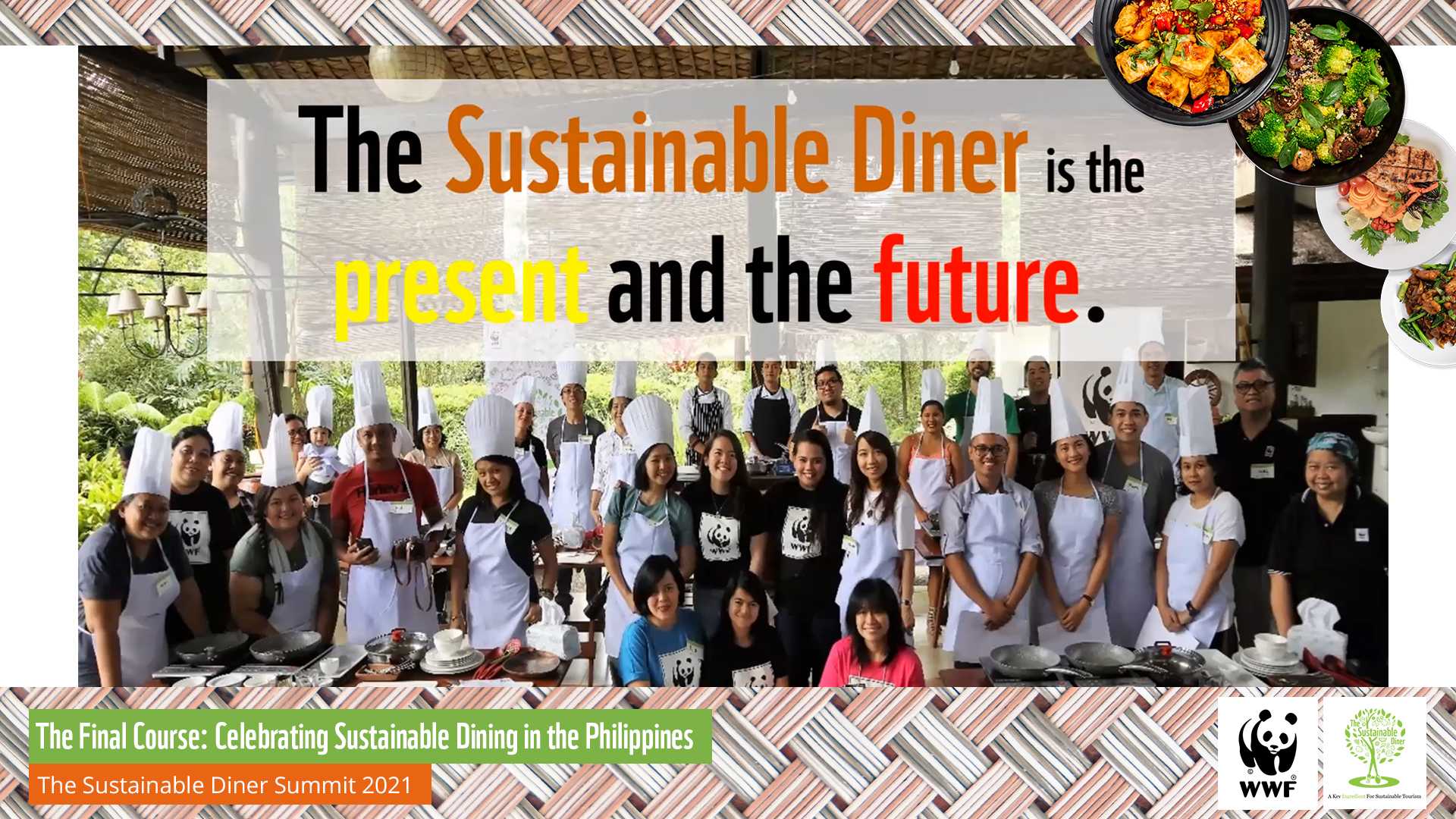
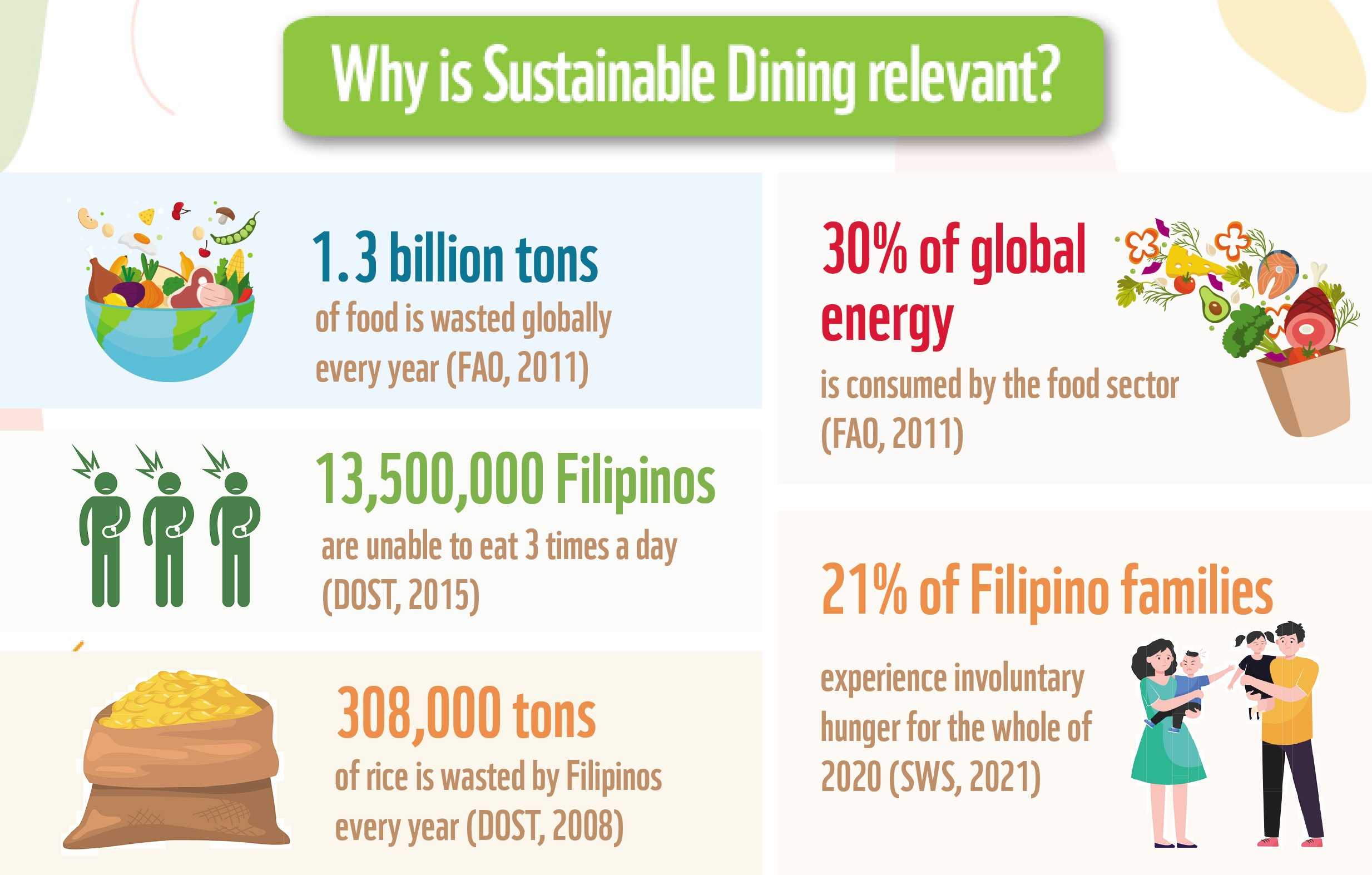
"These achievements show that through our collaborations, we have now laid the foundation for lasting change."
Melody Melo-Rijk, leading the project component for WWF-Philippines
The project set out to change consumer behavior and consumption patterns. The engagement within the project was a starting point, though there is still much to be done to achieve sustainability in the restaurant industry. The role of all parts of society – from government to businesses and consumers – cannot be overstated, it is a vital part of the equation. German Ambassador to the Philippines Anke Reiffenstuel and Climate Change Commission Secretary Emmanuel de Guzman underscored this message and emphasized the importance of collective action.
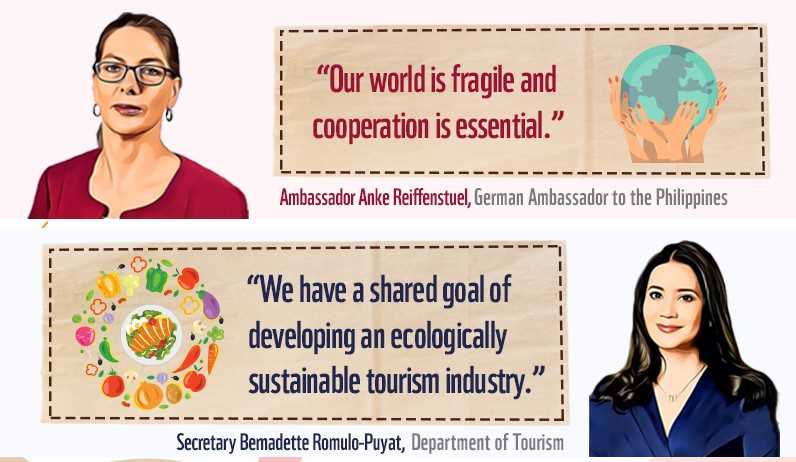
A cost-benefit analysis with a monitoring tool and a series of training modules were developed for restaurants that want to integrate sustainability into their business operations.
Teaching manuals for primary and secondary teachers and complementary materials for university courses in the field of food services provide educators with the information they need to teach the younger generation about sustainability. Balay Kawayan, an interactive game, and various other educational materials such as videos, webinars, and infographics were created by the Philippine project team.
